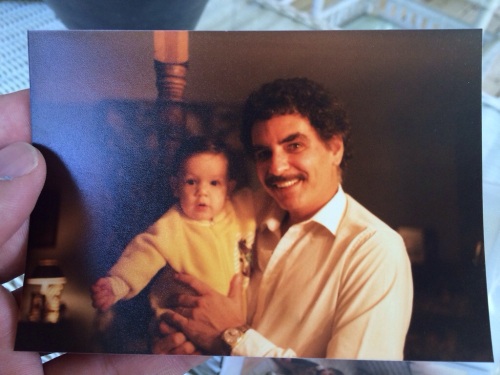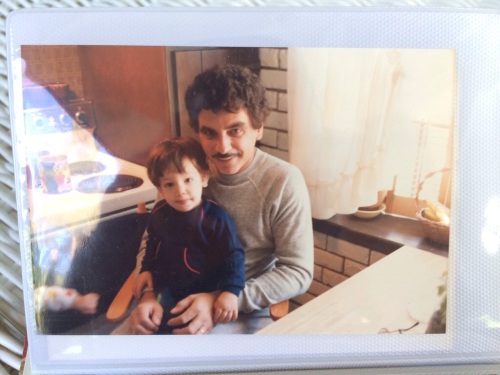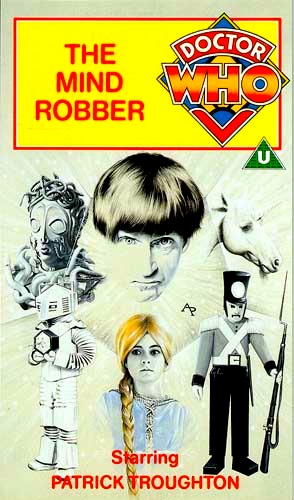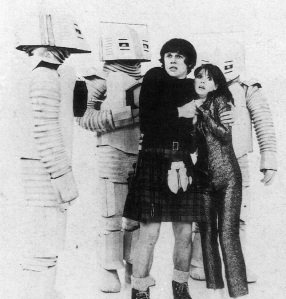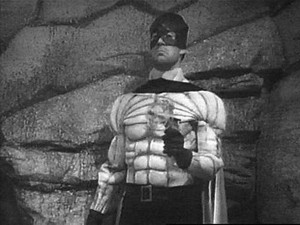So there’s a podcast called Book Fight, and if you have any modicum of love for literature, you should definitely check it out. Hosted by local Philadelphia authors Mike Ingram and Tom McAllister, the podcast is a consistently entertaining conversation about, well, books. According to their website description, Ingram and McAllister taylor their weekly program around “the conversations writers have at the bar, which is to say they’re both unflinchingly honest and open to tangents, misdirection, general silliness.” It’s a joy.
Anyhow, I was listening to a recent episode this afternoon and Ingram and McAllister—who both teach writing at Temple University, my alma mater—were discussing various writing exercises they use in class to spur students’ imaginations. You know, giving them all the same first sentence or asking them to concoct a short story from a single photograph. And it got me thinking back to my days at Temple and similar exercises my creative writing professors would use to elicit interesting material. And that’s when I remembered Charlie.
The task was simple: Take a classic tale of some kind and expand it beyond what we already know. Continue the story, if you will. I think we had just finished reading Donald Barthelme’s Snow White (go ahead and bend your brain a little). I can’t remember why I decided to write the piece I did, but I do remember thinking that it was going to blow the socks off of my professor. Looking back on it now I can of course see how reductive it is and oh-so-full of unearned undergraduate angst (I was reading a lot of Ginsberg and Kerouac, okay!). But there’s something really comforting about the singularity of my vision at the time. I was so insanely confident about my writing and not yet entirely schooled on the virus of cynicism and second guessing that inevitably worms its way into one’s brain. When I wanted to write I just wrote, and as I continue in my pursuits as a writer to this day I think there’s still a lot I can learn from that younger version of myself, despite how much self-absorbed and cliched dreck he occasionally churned out.
And so, submitted for the approval of the Midnight Society, I call this tale…
“That World With the Funny Dance Re-visited…”
by Nick DiUlio
Charlie was thinking of Christmas again. He sipped a beer and sat at the small table in his New York City apartment listening to jazz on a countertop radio. The night blazed on outside his kitchen window, cold, and the neon signs flashed intently with habit to the rhythm of his thoughts. He lit a cigarette and closed his eyes, letting the bbbblamm…yeaaah…and “oh, how about that” music swing his mind away from the world. He was thinking about Christmas again.
Clangs and horns and voices brought the streets to life and Charlie felt like getting out. He quickly finished his beer and threw on an old overcoat his mother had sent him five years ago. After shutting off the radio he made sure that his mini-cassette recorder was in his pocket. It was a cold, angel night and Charlie was thinking of Christmas.
Mrs. Fittermall surprisingly greeted Charlie as he stepped out into the hall. “Oh, Charlie! How are you sweetie? I heard about your father. I am so sorry.”
Good grief, he thought. “Happens to us all I suppose.”
“But such a shock. Are you all right? Is there anything I can do for you darling?”
“No thank you Mrs. Fittermall.” Charlie didn’t want to talk away the night and his night, his night of screeching lostness, was on the tip of extinction. He had to leave.
“Well, perhaps I’ll stop by later this week and drop off one of my pound cakes.”
“Alright,” he began walking towards the stairwell. “Thank you Mrs. Fittermall.” She turned and left Charlie to his business of getting gone. So he headed for the streets with his hands in his worn out pockets.
It had started snowing and a lonely wind watered his eyes. Collar up and there was music…“I heard the bells…silent night…I’ll be home…(and) have yourself a merry little…drummer boy.” Charlie would stop every so often and stare up at the December sky knowing that his absence of heart was sure to come and go in waves as it had since he was a child—since those times of a tree, a song, and some friends gathered around a snow pile discussing the taste of winter flakes. Since those times of his sister asking Santa for bills and unmarked generosities in the form of “cold hard cash.” Since those times of his dog playing tricks with the bird. Since these and a forever list of fading memories.
And with the city in a circling, voiceless mess of lost ambitions his heart made reference to these times over and over again. His heart and times passed. His heart and a look to the ground. His heart and he kept on walking.
At Times Square he could hear a trumpeter somewhere far off playing “Basin Street Blues” and the movie posters loomed heavy and god-like over the people of New York. One sight after another—family with a tree, delis with warm soup, tattooed bald headed rockers, empty lights-out rooms, shadows, ghetto poets, gutter deaths, and all under falling snow. Charlie took out his mini-cassette and hit record.
“When all of this fades and the night falls away fully
To the potential of nothing but a lost and hungry solace,
Where will Christmas be then? These trees and liquid hopes
And ‘yeah, let’s sing that one again honey’
Just don’t make sense any more.
Christmas. Oh, you forgotten child…
Was it yesterday that Lucy called and asked me to a party? Was it
Yesterday that she told me about her new husband (again
And again with that)? Was it yesterday or three years ago?
Nothing comes together the way it used to and beliefs just fall to pieces
And my dog was not supposed to
Charlie stopped to light another cigarette. He took a drag, looked around and decided to go see Schroder playing at the Cat Scratch. He looked for a cab and as he stood on the curb and watched the ghostly faces rush around he realized that he thought passing time would have been easier. He thought that all of those days in class as a child (trumpet voices, wa wa wa…) would have yielded something greater than this—cold and hungry jazz American Decembers. He thought about Linus and how he was probably better off in Tangiers anyway. He thought that happiness was infinitely far away at the age of 25. He thought and thought and realized that it all came back to thinking of Christmas again.












